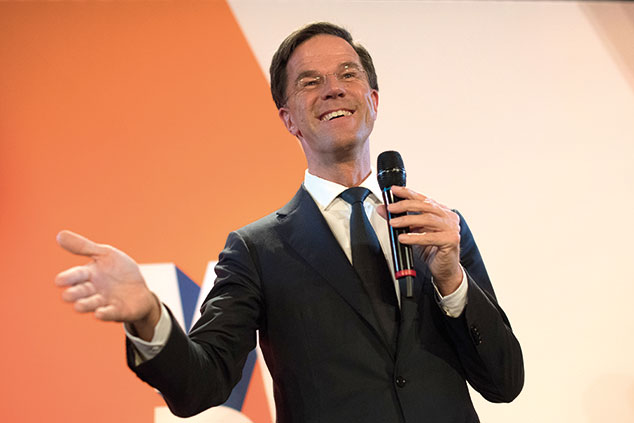
The consumer-goods giant has chosen Rotterdam over London for its unified headquarters. Takeover threats and taxes played a part. Alice Gråhns reports.
“Britain’s third-biggest company has confirmed Europe’s worst kept corporate secret,” says Matthew Vincent in the Financial Times. Consumer-goods giant Unilever, the maker of Dove soap and Hellman’s mayonnaise, has announced that its two separate holding companies, one Dutch, one British, will become a single group incorporated in the Netherlands. It has chosen Rotterdam over London as the location for its new unified headquarters.
Why did the 130-year-old company make a choice in the first place? It got a nasty fright last spring when US firm Kraft Heinz launched a hostile $143bn takeover bid, says Stephen Wilmot in The Wall Street Journal. While the bid failed, the “trauma of becoming a… target” prompted a major strategic review, which ultimately convinced Unilever’s management that “it needed flexibility to shake up its portfolio of consumer brands”.
Facilitating acquisitions of other firms and fending off predators are crucial in this regard. Unilever’s decision “to go Dutch is about giving itself advantages in mergers and acquisitions, whether bidder or target”, say Andrea Felsted and Chris Hughes on Bloomberg Gadfly. Now, any future approach for Unilever would come under the jurisdiction of Dutch takeover rules rather than those of the UK Takeover Panel.
The Netherlands regime allows potential targets to take more drastic action to frustrate bidders.
It’s not about Brexit – honest
Becoming a single legal entity also makes it easier and more tax-efficient for Unilever to use its shares as currency in a major acquisition. Having a single set of shareholders also makes demergers less of a hassle. Unilever will now be able to scoop up Estée Lauder or Colgate-Palmolive in the US, for instance, and ditch its food business: “bulking up in the faster-growing personal-care business and offloading”
slow-growing food would help pre-empt another hostile bid from Kraft. A revamp of the firm into three divisions, beauty, home care and foods, further emphasises that the move is all about streamlining and strategy.
Unilever denies the move has anything to do with Brexit and will “retain a big presence in Britain”, says Carol Ryan on Breakingviews. Its 7,300 UK-based employees will keep their jobs and the two fastest-growing divisions, representing 60% of revenue, will be run from London. Still, it’s a setback for Theresa May “as she grapples with the fallout from Brexit, and a victory for her Dutch counterpart Mark Rutte. The former Unilever employee helped swing the decision by scrapping a Dutch dividend withholding tax that penalised overseas investors”. Unilever will remain listed in London, but seems unlikely to stay in the FTSE 100 index. Shareholders in Unilever’s Dutch and UK entities get to vote on the plan. Three-quarters of the latter will need to back it, but overall the rejig “should be good for investors”.